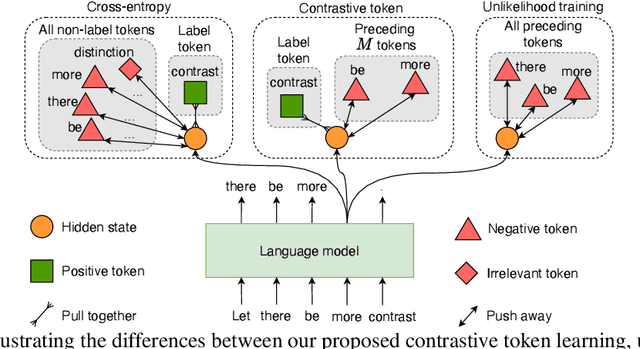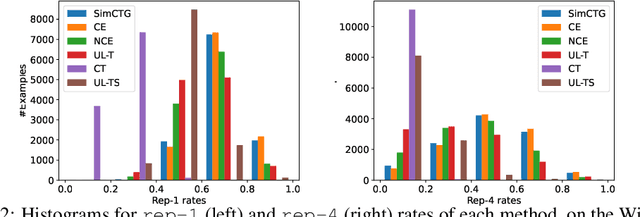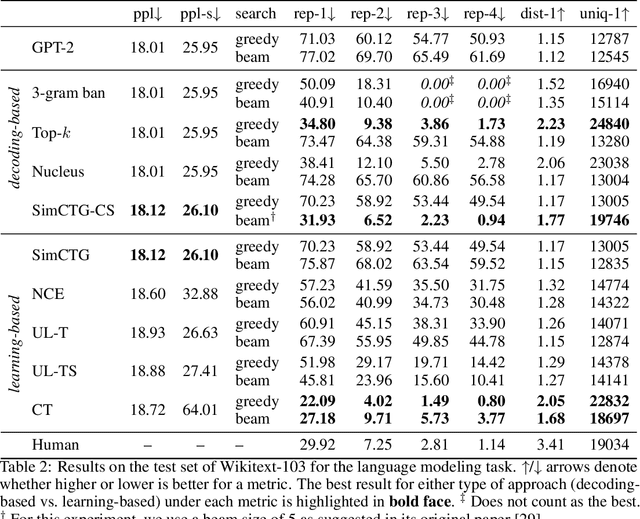A Simple Contrastive Learning Objective for Alleviating Neural Text Degeneration
Paper and Code
May 19, 2022



The cross-entropy objective has proved to be an all-purpose training objective for autoregressive language models (LMs). However, without considering the penalization of problematic tokens, LMs trained using cross-entropy exhibit text degeneration. To address this, unlikelihood training has been proposed to reduce the probability of unlikely tokens predicted by LMs. But unlikelihood does not consider the relationship between the label tokens and unlikely token candidates, thus showing marginal improvements in degeneration. We propose a new contrastive token learning objective that inherits the advantages of cross-entropy and unlikelihood training and avoids their limitations. The key idea is to teach a LM to generate high probabilities for label tokens and low probabilities of negative candidates. Comprehensive experiments on language modeling and open-domain dialogue generation tasks show that the proposed contrastive token objective yields much less repetitive texts, with a higher generation quality than baseline approaches, achieving the new state-of-the-art performance on text degeneration.
 Add to Chrome
Add to Chrome Add to Firefox
Add to Firefox Add to Edge
Add to Edge